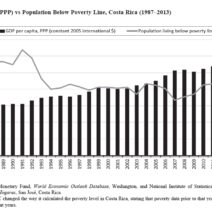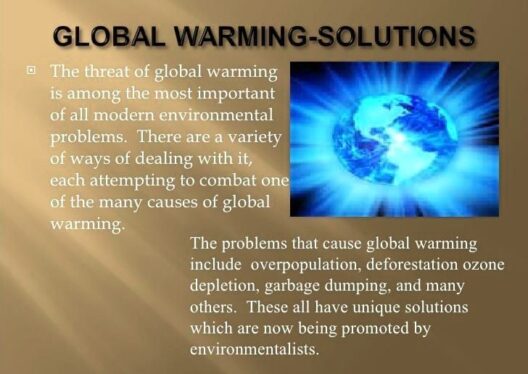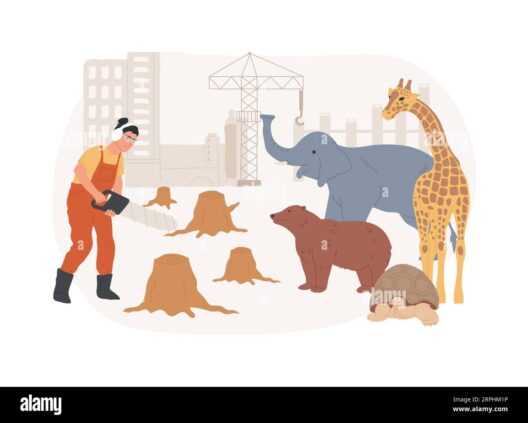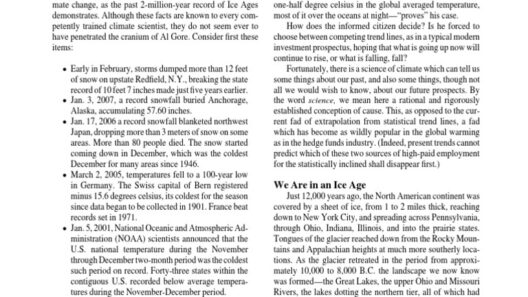Climate change has emerged as a prevailing subject within contemporary discourse, often polarizing opinion. However, an intriguing perspective arises when some assert that climate change is not significant or even a myth. What underpins such assertions? In delving into the crux of this debate, it becomes evident that numerous misconceptions prevail. By dissecting these myths and aligning them with factual evidence, a more nuanced understanding of the issue can flourish.
The initial argument frequently posited by climate change skeptics is the assertion that the climate has always undergone fluctuations. Indeed, history illustrates various climatic shifts, such as the Little Ice Age and earlier warming periods. Nonetheless, these natural variations unfold over millennia, not in the accelerated manner observed today. The current trajectory of temperature rise is unprecedented and correlates closely with anthropogenic activities, particularly greenhouse gas emissions. Thus, the historical context often cited does not invalidate the urgency of addressing present-day climate change.
A pervasive myth contends that climate change impacts are exaggerated or merely a scare tactic employed by scientists. Critics claim that the scientific community, in its quest for funding or influence, produces inflated predictions. However, the consensus among climate scientists, as corroborated by numerous studies, is alarmingly consistent: the planet is warming, and human-induced emissions play a pivotal role. The Intergovernmental Panel on Climate Change (IPCC) reports frequent projections that, while sometimes alarming, are rooted in robust models backed by empirical data. Disregarding these warnings undermines the scientific integrity of climate research.
Some individuals posit that climate change is a distant concern, one that does not necessitate immediate attention. This notion underestimates the current realities faced by numerous communities worldwide. From intensified hurricanes and wildfires to prolonged droughts and flooding, the harbingers of climate change are not relegated to the future. For instance, the increased frequency of extreme weather events can be traced directly to a warming climate. The financial and humanitarian toll on affected communities is profound. Thus, dismissing climate change as a future danger renders inaction a dangerous gamble.
Another intriguing misconception is the belief that technological advancements will inevitably solve the climate crisis. While innovation will undoubtedly play a vital role in mitigating climate impacts, relying solely on future breakthroughs is shortsighted. Technologies such as carbon capture and renewable energy sources need extensive investment, policy support, and time to develop and deploy. Journalists, scientists, and policymakers must work in concert to encourage sustainable practices and investments today, thereby laying the groundwork for effective solutions tomorrow.
Furthermore, some argue that economic growth will be stifled if governments enact stringent environmental regulations. It is essential to recognize that a sustainable economy can flourish alongside environmental stewardship. Transitioning to a green economy presents opportunities to create jobs in renewable energy sectors, energy efficiency, and sustainable agriculture. Circumventing climate change does not necessitate sacrificing economic growth; rather, it invites innovation and adaption to an evolving market. The notion of a binary choice between a thriving economy and environmental protection is antiquated and ultimately unproductive.
Furthermore, there is a pervasive myth that climate action is an individual responsibility; therefore, one person’s choices matter little against the scale of the crisis. While individual actions such as reducing waste or conserving energy are laudable pursuits, collective action is paramount. Governments, corporations, and organizations must be held accountable for their roles in perpetuating climate change. Comprehensive policies, international agreements, and corporate responsibility are crucial to address systemic issues effectively. Dismissing climate action as solely a personal obligation overlooks the structural changes necessary for substantial progress.
Critics also argue that climate change advocacy often leans toward alarmism, leading to disillusionment among the populace. Fear-based messaging can indeed be counterproductive, resulting in apathy or denial. However, a balanced approach that emphasizes resilience, adaptation, and solution-oriented discussions is pivotal. Instead of fixating solely on catastrophes, narratives should include community-based adaptations, successful case studies, and innovations that inspire hope. For example, communities worldwide are embracing regenerative agricultural practices, showcasing resilience and adaptation in the face of climate change.
Another important point to highlight is the dichotomy often drawn between developed and developing nations in the climate change discourse. Critics contend that industrialized nations should bear the majority of the burden due to their historical emissions. While it is undeniable that industrialized nations have played a significant role in the current crisis, developing nations are disproportionately affected by its impacts. Climate change exacerbates existing vulnerabilities, such as food insecurity and poverty. Acknowledging the interconnectedness of these issues prompts a more equitable approach to climate justice that champions the voices of those most affected.
In conclusion, the discourse surrounding climate change is rich and layered, often muddled by persistent myths and misunderstandings. While some may assert that climate change is unimportant, the overwhelming evidence and ongoing realities of its impact speak otherwise. Dispelling these myths is essential for fostering informed dialogue and facilitating collective action. Humanity’s future depends on recognizing climate change not merely as an environmental issue but as a multidimensional challenge that demands urgent attention and responsive strategies. Embracing this perspective ushers in the promise of innovation, resilience, and a collective commitment to our planet’s well-being.








